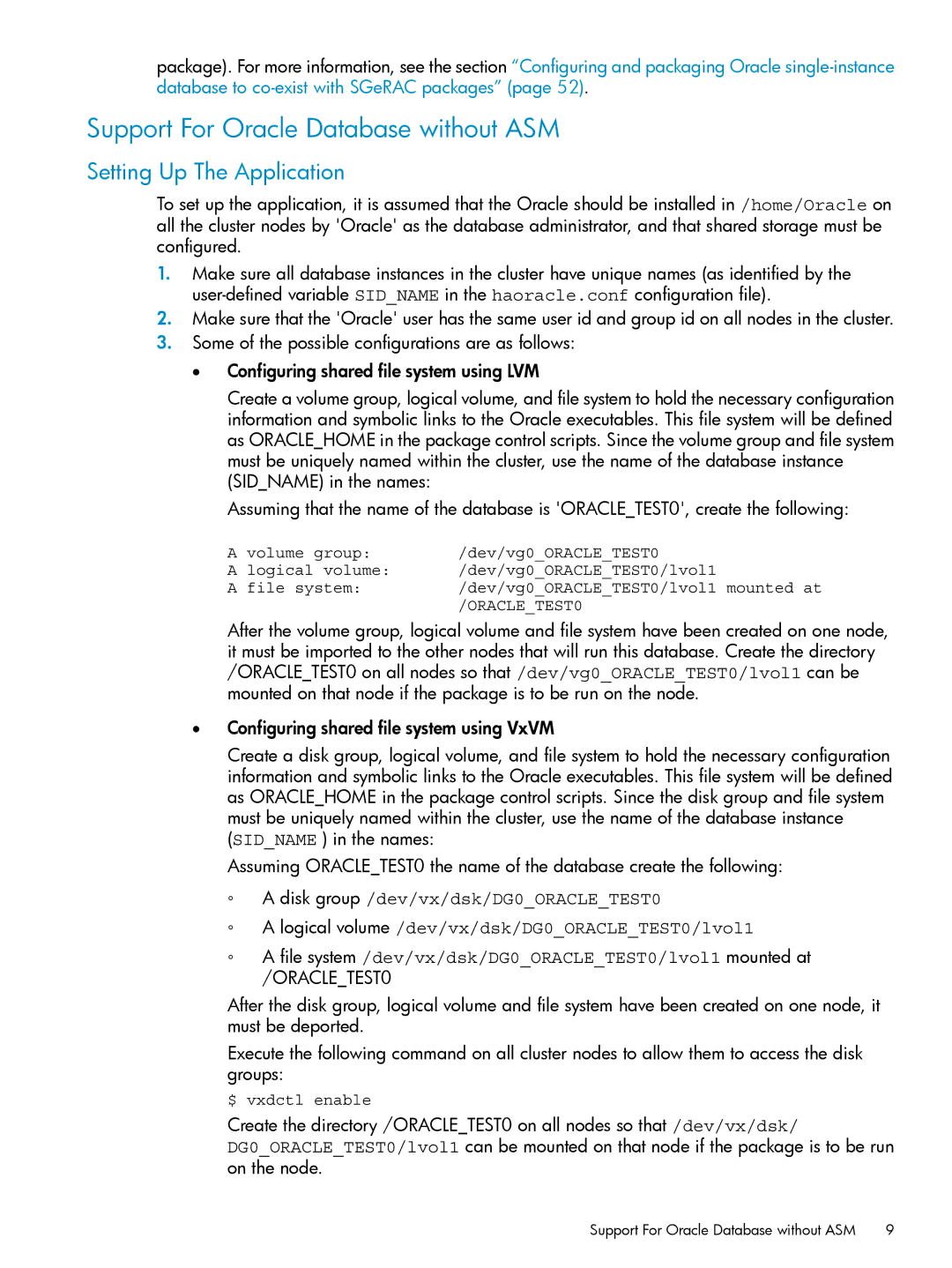package). For more information, see the section “Configuring and packaging Oracle
Support For Oracle Database without ASM
Setting Up The Application
To set up the application, it is assumed that the Oracle should be installed in /home/Oracle on all the cluster nodes by 'Oracle' as the database administrator, and that shared storage must be configured.
1.Make sure all database instances in the cluster have unique names (as identified by the
2.Make sure that the 'Oracle' user has the same user id and group id on all nodes in the cluster.
3.Some of the possible configurations are as follows:
•Configuring shared file system using LVM
Create a volume group, logical volume, and file system to hold the necessary configuration information and symbolic links to the Oracle executables. This file system will be defined as ORACLE_HOME in the package control scripts. Since the volume group and file system must be uniquely named within the cluster, use the name of the database instance (SID_NAME) in the names:
Assuming that the name of the database is 'ORACLE_TEST0', create the following:
A volume group: A logical volume: A file system:
/dev/vg0_ORACLE_TEST0 /dev/vg0_ORACLE_TEST0/lvol1 /dev/vg0_ORACLE_TEST0/lvol1 mounted at /ORACLE_TEST0
After the volume group, logical volume and file system have been created on one node, it must be imported to the other nodes that will run this database. Create the directory /ORACLE_TEST0 on all nodes so that /dev/vg0_ORACLE_TEST0/lvol1 can be mounted on that node if the package is to be run on the node.
•Configuring shared file system using VxVM
Create a disk group, logical volume, and file system to hold the necessary configuration information and symbolic links to the Oracle executables. This file system will be defined as ORACLE_HOME in the package control scripts. Since the disk group and file system must be uniquely named within the cluster, use the name of the database instance (SID_NAME ) in the names:
Assuming ORACLE_TEST0 the name of the database create the following:
◦A disk group /dev/vx/dsk/DG0_ORACLE_TEST0
◦A logical volume /dev/vx/dsk/DG0_ORACLE_TEST0/lvol1
◦A file system /dev/vx/dsk/DG0_ORACLE_TEST0/lvol1 mounted at /ORACLE_TEST0
After the disk group, logical volume and file system have been created on one node, it must be deported.
Execute the following command on all cluster nodes to allow them to access the disk groups:
$ vxdctl enable
Create the directory /ORACLE_TEST0 on all nodes so that /dev/vx/dsk/
DG0_ORACLE_TEST0/lvol1 can be mounted on that node if the package is to be run on the node.
Support For Oracle Database without ASM | 9 |
